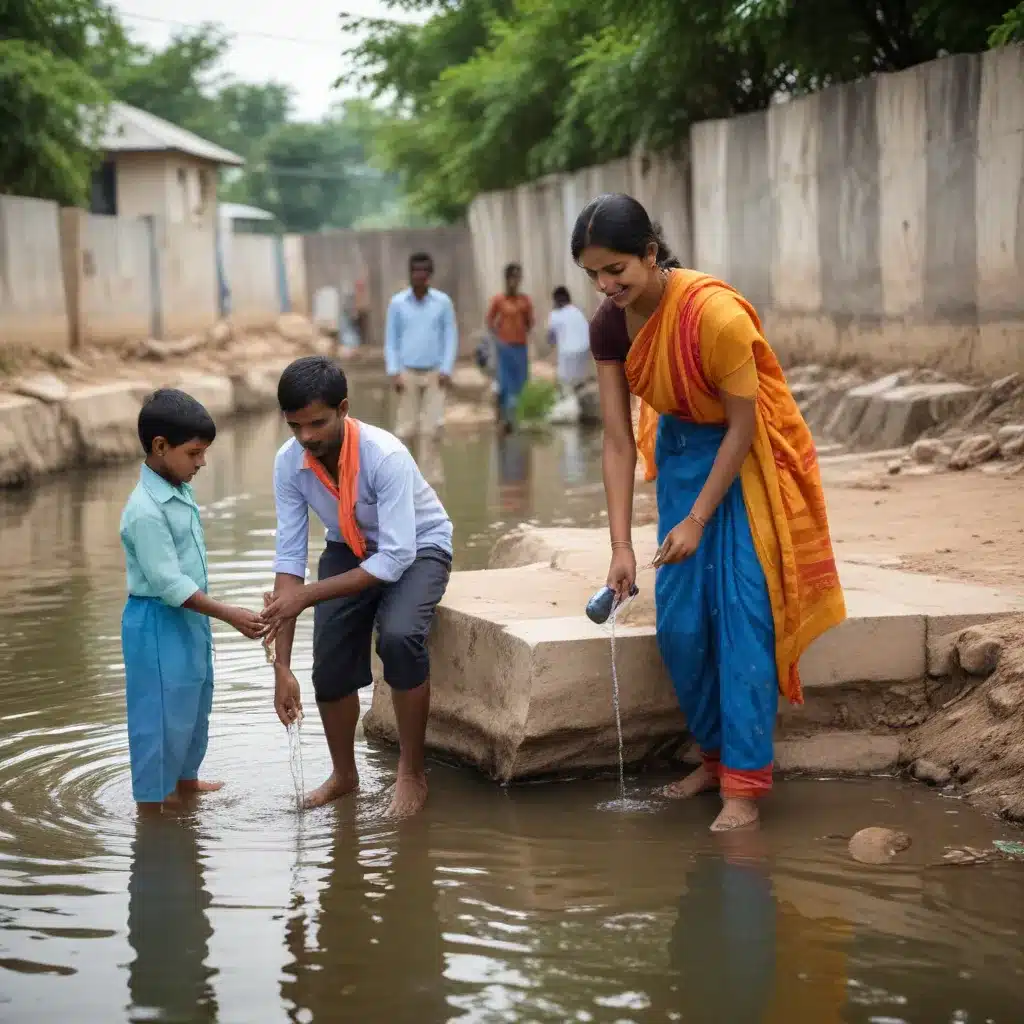
Understanding the Water Quality Challenge
Access to clean and safe drinking water is a fundamental human right, yet millions of people around the world, including in urban centers like Hyderabad, India, continue to face significant challenges in securing this basic necessity. Contaminated water can lead to devastating health consequences, such as waterborne diseases, malnutrition, and even death. To address this critical issue, a dedicated team of researchers, engineers, and community advocates has come together to revolutionize water quality monitoring and management in Hyderabad.
The water quality in Hyderabad, a rapidly growing city of over 10 million residents, is a complex and multifaceted problem. Factors such as rapid urbanization, industrial pollution, and aging infrastructure have all contributed to the deterioration of water sources. “Many low-income communities in Hyderabad rely on groundwater or informal water supplies that are often contaminated with harmful substances,” explains Spurthi Kolipaka, a water and sanitation expert and community advocate. “This puts the health and wellbeing of these vulnerable populations at great risk.”
Empowering Communities Through Innovative Monitoring
To tackle this challenge, the Indian Institute of Technology (IIT) Madras has launched a pioneering initiative, the “Hybrid Course on Water Quality – An Approach to People’s Water Data.” This innovative program leverages cutting-edge technology and community engagement to empower residents in Hyderabad to become active participants in monitoring and improving their local water quality.
“Our goal is to provide real-time, reliable water quality data to communities, enabling them to make informed decisions and advocate for better water services,” says Professor Thalappil Pradeep, the founder of the program. “By equipping citizens with the tools and knowledge to assess their water quality, we’re creating a grassroots movement for clean, safe, and equitable water access.”
The Hybrid Course on Water Quality combines theoretical instruction with hands-on training in water quality testing and data analysis. Students from diverse academic backgrounds, including engineering, environmental science, and community development, are invited to participate. The program offers:
- Innovative Research: Participants work alongside leading experts to develop new technologies and methodologies for water quality monitoring, contributing to cutting-edge research and solutions.
- Real-World Impact: Through community-based projects, students directly engage with local residents, understanding their water-related challenges and co-creating sustainable interventions.
- Collaborative Environment: The program fosters a dynamic and diverse community of water professionals, enabling cross-disciplinary collaboration and knowledge sharing.
- Career Advancement: Participants gain valuable skills and experience that can propel their careers in the water sector, environmental advocacy, or community development.
Empowering Communities, Ensuring Equitable Access
The impact of the Hybrid Course on Water Quality has been far-reaching. Over 520 students from 10 institutions across 4 countries have participated in the program, with many going on to work in the water and sanitation sector or continue their involvement in community-based initiatives.
One such success story is the work of the United Way of Hyderabad, a local non-profit organization that has partnered with the IIT Madras team to engage low-income communities in water quality monitoring. “By training community members to test their water and share the data, we’re not only empowering them to understand the state of their water resources but also equipping them with the knowledge and tools to advocate for change,” says Spurthi Kolipaka, who leads the United Way’s water quality initiative.
The community-based water quality monitoring program has yielded tangible results, with residents using the collected data to engage with local authorities and demand infrastructure improvements, such as the installation of water treatment plants and the rehabilitation of aging pipelines. This collaborative approach has fostered a sense of ownership and agency within the communities, enabling them to become active participants in the decision-making processes that shape their access to clean water.
Scaling Up for Greater Impact
The success of the Hybrid Course on Water Quality has inspired the IIT Madras team to expand the program’s reach and impact. They are actively exploring partnerships with other academic institutions, non-profit organizations, and government agencies to replicate the model in other cities across India and beyond.
“Our vision is to create a global network of community-based water quality monitoring initiatives, empowering citizens worldwide to take control of their water resources and advocate for their right to clean, safe, and equitable water,” says Professor Pradeep.
To further this goal, the IIT Madras team is offering a 50% fee waiver for the 2024 edition of the Hybrid Course, making it more accessible to students and community members who are eager to be part of this transformative movement. By lowering the financial barrier, the program aims to attract a diverse range of participants, ensuring that the benefits of this innovative approach are distributed equitably.
Conclusion: A Blueprint for Community Empowerment
The Hybrid Course on Water Quality in Hyderabad serves as a powerful blueprint for community-driven water quality monitoring and advocacy. By combining cutting-edge technology, interdisciplinary collaboration, and grassroots engagement, this initiative is creating a paradigm shift in the way water quality issues are addressed, empowering communities to become active agents of change.
As the world grapples with the growing water crisis, the lessons learned from Hyderabad’s experience can be adapted and scaled to other regions, inspiring a global movement for clean, safe, and equitable access to water. Through initiatives like the Hybrid Course, communities can reclaim their right to a basic resource that is essential for human health, sustainable development, and a thriving future.
To learn more about the Hybrid Course on Water Quality and how you can get involved, visit the Joint Action for Water website or register at https://lnkd.in/eq2QRJTU.

